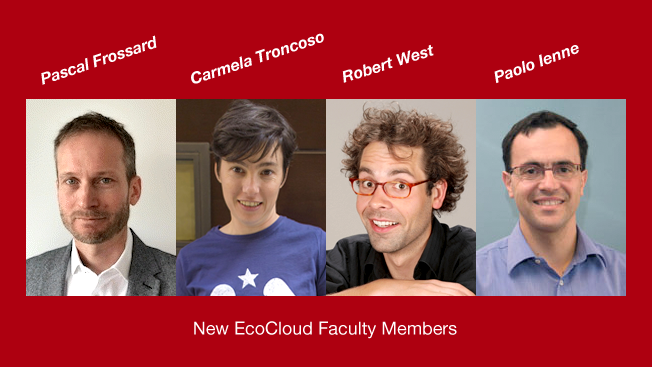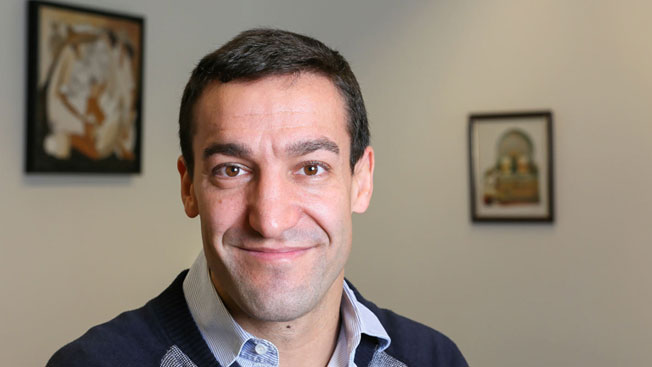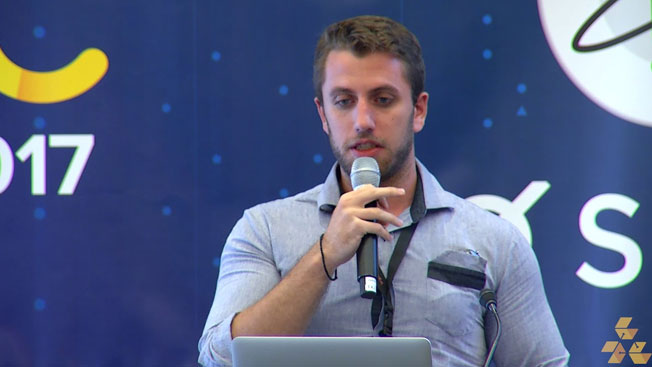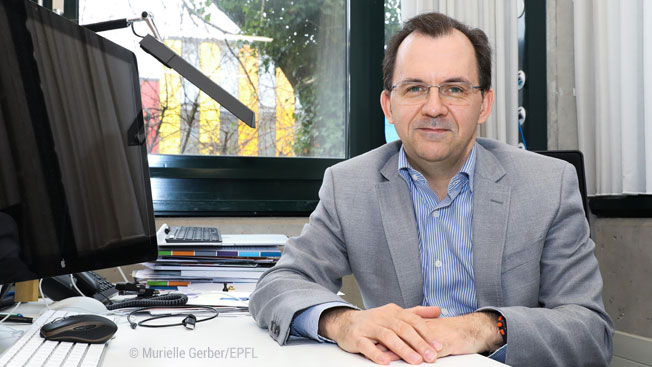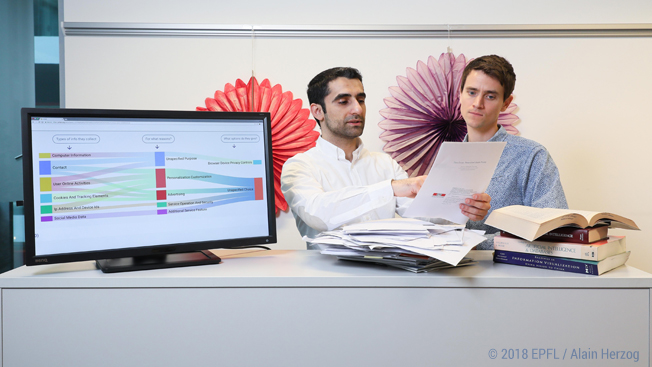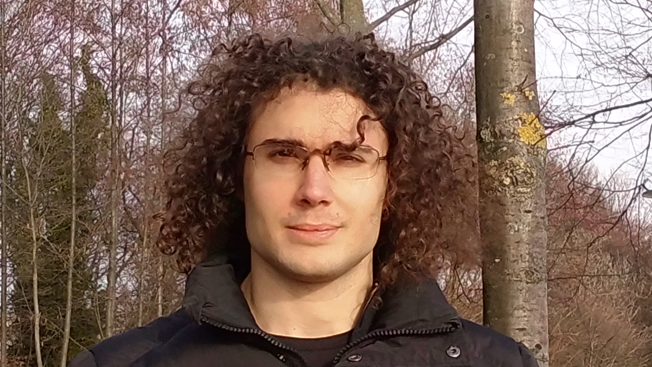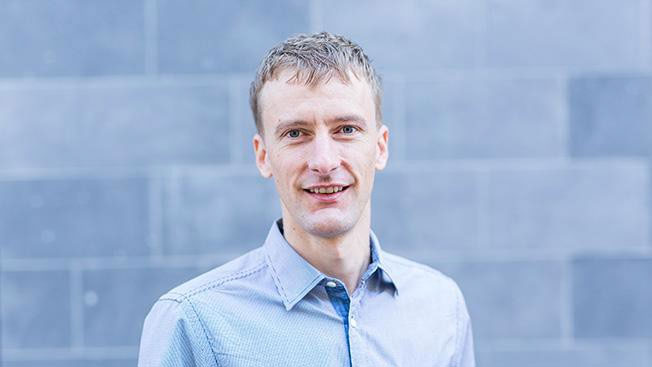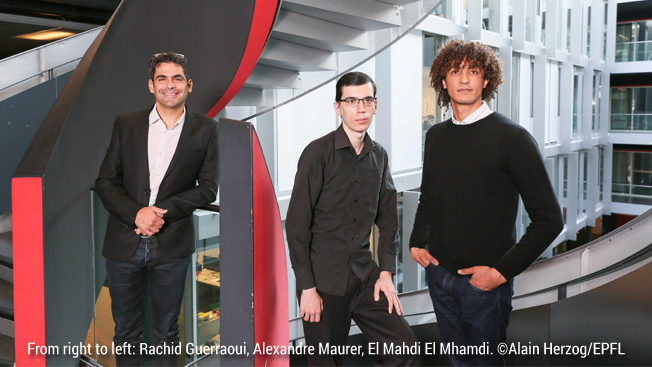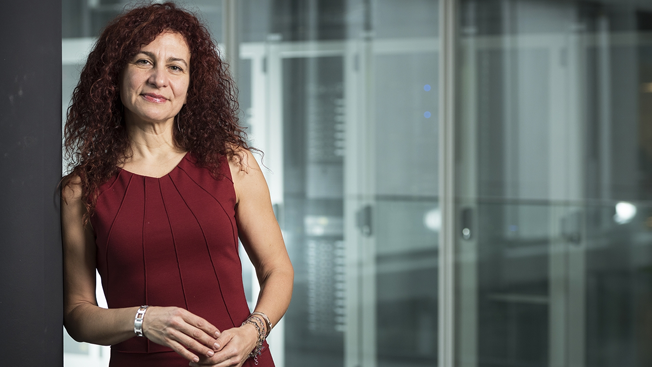EcoCloud, the EPFL research center that drives today’s cloud computing technologies, warmly welcomes four new professors to its fold. They are Pascal Frossard, Carmela Troncoso, Robert West, and Paolo Ienne.
Read MoreNews
David Atienza wins IEEE TCCPS Mid-Career Award
Each year, the IEEE Technical Committee on Cyber-Physical Systems (TCCPS) recognizes outstanding scientific contributions under various categories, including the Early- and Mid-Career awards. The winners for 2018 have just been announced by the Committee. Among the awardees is David Atienza, associate professor of electrical engineering and director of the Embedded Systems Laboratory (ESL) at EPFL. He has won the Mid-Career Award for “sustained contributions to thermal processor design and medical wearables.’’
Read MoreLefteris Kokoris-Kogias wins IBM PhD Fellowship Award for the Second Year Running
The IBM PhD Fellowship Award, instituted in 1950 to recognize outstanding PhD students who drive innovation, is one of the most sought-after distinctions worldwide. Each year, only a chosen few make it to the elite group. Among the awardees for 2018 is Lefteris Kokoris-Kogias from EPFL’s Laboratory of Decentralized and Distributed Systems. His achievement is all the more creditable because he figured among the awardees for 2017 as well.
Read MoreEdouard Bugnion to Play Key Role in EPFL-ICRC Alliance
In March 2016, EPFL and the International Committee of the Red Cross (ICRC) signed a seminal agreement to establish the Humanitarian Tech Hub. The four-year program has opened many avenues of collaboration between the scientific and humanitarian fields. To further cement that relationship, ICRC has just announced the appointment of EPFL’s Edouard Bugnion to the ICRC Assembly.
Read MorePolisis: An AI Eye to Decipher Privacy Policies in Seconds
Web browsing has become almost second nature to us. Each day, we plunge into tens of websites and unwittingly accept their long-winded privacy policies without bothering to peruse their stipulations. This is undoubtedly because those documents are shrouded in legalese too dense and cumbersome to read and digest. Yet, it is a well-known fact that many websites collect, store, and even use the private data that we inadvertently leave behind during our browsing sessions. Disturbingly, such practices are usually protected by the legal jargon contained in their privacy policies. So how do we ascertain the nature of data collected by a website? Is it possible to know how our data will be used by a website even before we start browsing that site?
Read MoreBuilding Efficient Causal Consistency Systems: A LABOS-LPD Joint Initiative Funded by EcoCloud
Geo-replication is gaining ground for distributed services because it brings the services closer to the end users, reduces the page-load time, and increases user engagement. It also enables data platforms, such as that of Facebook, to survive data center failures. However, recent work has proven that no distributed data system can assure the best of desirable properties like low-latency access, partition tolerance, and strong consistency.
Read MoreScientists Develop 10X Faster Machine Learning Algorithm
Training of large-scale machine-learning models is extremely challenging because the training data is much more than the memory capacity. However, scientists at IBM and EPFL have collaborated to develop a novel scheme that enables the use of accelerators such as GPUs and FPGAs to speed up the training of machine learning models. They presented their findings at the 31st Annual Conference on Neural Information Processing Systems (NIPS) in Long Beach, California.
Read MoreDynamic Safe Interruptibility: A Breakthrough in AI
Machine learning and artificial intelligence (AI) are finding new applications across industries. Many tasks that were performed by humans are now being handled by machines, adding efficiency to the output. But what would happen if AI crosses the threshold of human control and makes unilateral decisions? It is a frightening, but highly probable, scenario. In 2014, it prompted Google to consider the idea of a “big red button” to stop dangerous AI in an emergency. However, the challenge is not in being able to stop or interrupt an AI process but in preventing AI from biased learning due to such frequent interruptions. The biased learning can be extremely dangerous in multi-agent systems, where several machines are involved in an AI task.
Read MoreEd Bugnion Talks about Cloud Computing on Swiss TV and Radio Station RTS
The program in French can be found here.
Read MoreAnastasia Ailamaki Elevated to IEEE Fellow
Anastasia Ailamaki, Professor and Lab Director at the Data-Intensive Applications and Systems Laboratory (School of Computer and Communication Sciences), has just added another feather to the cap of EPFL’s research excellence. IEEE has included her as IEEE Fellow in the Class of 2018.
Read More